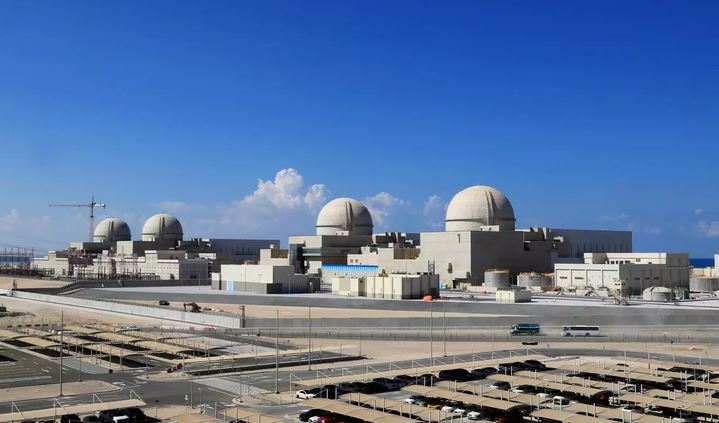The United Arab Emirates became the first Arab nation to open a nuclear power plant on Saturday, creating questions about the long-term implications of further nuclear programs being brought into the Middle East.
Two other countries now have nuclear capability in the region — Israel and Iran. Israel has an unrecognized stockpile of nuclear weapons and Iran has a contentious uranium enrichment programme. It maintains this is for peaceful purposes only.
The first Arab nuclear power station
The U.A.E., a tiny nation that has become a global heavyweight and multinational business base, said it constructed the plant to lessen its reliance on the oil that has dominated and sustained the world and its neighbors to the Gulf for decades. It said the South Korean-designed plant would supply a quarter of the country ‘s power until its four units were all working.
In search of quiet fears that she was trying to build muscle to use against her regional rivals, she insisted that she would only use her nuclear program for energy purposes.
Yet with Iran in a standoff over its nuclear program with Western powers. Also Israel in the region and rising tensions among Gulf countries. Some observers see the current plant — and any that might follow — as a security and environmental headache. Other Arab countries also start or plan nuclear energy programmes, including Saudi Arabia.
The Middle East is now riveting with enmities pitting Saudi Arabia and the United States. Against the nationalist allies of Iran, Qatar and Iran. One of those proxies, the Houthi rebel group based in Yemen. They claimed an attack on the Barakah plant in 2017, when it was under construction.
Yet Iran is commonly suspected to be behind a string of attacks during the last year on Saudi oil facilities yet oil tankers traveling through the Mediterranean.
“Investing in these four nuclear reactors from the UAE threatens further destabilizing the fragile Gulf zone. Also destroying the atmosphere and increasing the potential for nuclear proliferation”. Paul Dorfman, a professor at the London Energy Institute University College, wrote in an op-ed in March.
A great energy option
Yet the U.A.E. said it considered natural gas and green energy options before rejecting them in favour of nuclear power. Because they did not provide enough for their needs.
Providing indications that its purposes are peaceful. It points to its relationships with the International Atomic Energy Agency ( IAEA), which reviewed the Barakah programme, and the United States. With whom it concluded a 2009 nuclear cooperation agreement. Allowing it to obtain nuclear materials and technical assistance from the United States. While preventing uranium enrichment and other possible bomb-development activities.
That has not reassured Qatar, which lodged a protest about the Barakah plant with the international nuclear monitoring community last year. Also calling it “a significant danger to the region’s security and its climate.”
Oil exports from the U.A.E. account for about a fifth of its overall gross domestic product. Notwithstanding its gusher of crude, in recent years it has partly imported growing amounts of natural gas to fuel its energy-intensive desalination plants.





